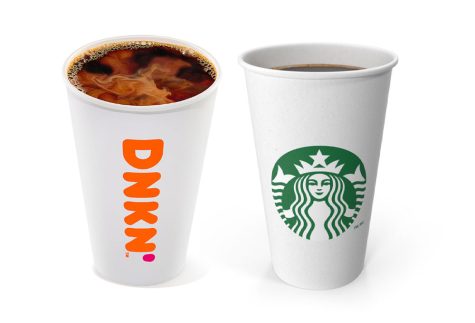2048 24/7
Even as I begin typing this story I look to the right of me, and there is my sister sitting on the couch ignoring freshly baked blueberry pie with whipped cream. I wonder what could possibly be distracting her from this until she shouts “I just beat my high score on 2048!”
It is no secret to anyone that under every student’s desk or the on the screen of every library computer is a round of 2048 being played. This game has been the sensation the past few months. It was added, top rankings, to the list of the most downloaded apps at the Apple Store. The game was released this March, by a 19 year old Italian developer Gabriele Cirulli. If you have not played this game via your smartphone or computer, there’s a brief description of it in the following paragraph; if you know the game feel free to skip over the paragraph after.
The board has 16 tiles, and you start with two tiles with either a 2 or a 4. You must swipe tiles either left, right, up or down, in order to match numbers and eliminate tiles by combining the tiles. For example, when you swipe a 2 tile to another 2 tile, you cancel it out by adding them together in their sum of 4. You continue to swipe and only combine tiles of the same number. The goal is to add all these up to 2048. If you run out of combinations or space on the board, you lose.
Now why has this game become the pinnacle of all smartphone games available? Well, believe it or not the answer to why every one of your friends is glued to a 16 tile board is scientific. Judy Willis, a neurologist at the Graduate School of Education at the University of California, explored the neuroscience behind 2048 addictive qualities.
She claims the main cause is Dopamine. Dopamine is a neurotransmitter. It runs through our nervous systems every day, but once it builds up our brains can go into hyper-drive.
“Dopamine is the one of the most compelling neurochemicals—and the most addictive drugs—that we know of,” Willis says. While boosting perseverance and pleasure, dopamine decreases stress. Things that cause this boost of dopamine can very from something as simple as a small victory at work to all the way up to actually taking drugs. It’s known for pulling people into drug addiction. It turns out that 2048 offers two of the strongest dopamine boosters.
One is the power of prediction. “The brain loves to make predictions,” Willis says. “In 2048, every 2 or 4 that you move is a prediction—you’re not sure it’s the best thing to do—and the game offers limitless chances to make another prediction.” You dopamine will apparently still boost even when you fail at the game. Essentially, your brain demands that you keep on swiping those tiles. The effect is that even when you lose the game you remain calm, and your brain is comfortable and doesn’t want to quit.
The second booster is the achievability challenge. Since 2048 is neither particularly difficult nor particularly easy, it seems to be the perfect game to elevate dopamine levels. A game needs to be challenging but beatable in order to have the ultimate boost of dopamine.
Video game addiction is a serious and all-too-real thing. “People who become dependent on the game find those feelings so compelling that they cannot successfully do the rest of the things in life,” says Willis. “The frequent rush of dopamine from combining 16’s into a 32 results in the temptation to avoid work,” she says.
So instead of work, we play. Because you never know; you could get better next time.















